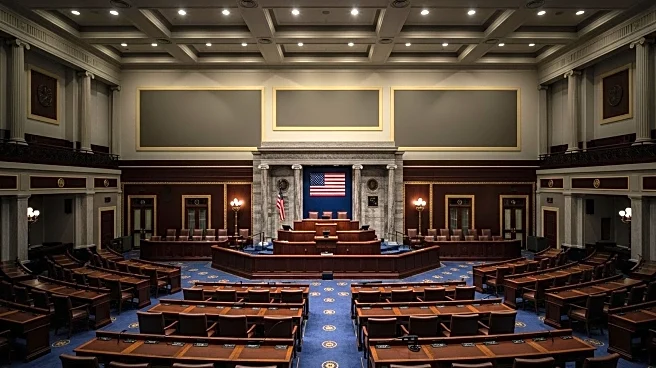What's Happening?
The U.S. Senate is scheduled to reconvene on Friday as the government shutdown continues without significant progress in negotiations. The shutdown, which has persisted for several days, is affecting various government operations and services. Lawmakers have been unable to reach a consensus on budgetary allocations, leading to a stalemate. The Senate's reconvening is seen as a critical step in attempting to resolve the impasse, although expectations for immediate resolution remain low. The shutdown has resulted in furloughs for federal employees and disruptions in public services, highlighting the urgency for legislative action.
Why It's Important?
The ongoing government shutdown has significant implications for the U.S. economy and public services. Federal employees face uncertainty with unpaid furloughs, affecting their financial stability. Essential services, including national parks and public health programs, are experiencing disruptions, impacting citizens nationwide. The shutdown also poses risks to economic growth, as prolonged government inactivity can lead to decreased consumer confidence and potential market instability. Political leaders are under pressure to negotiate a resolution to prevent further economic and social repercussions.
What's Next?
As the Senate reconvenes, discussions are expected to focus on finding a compromise to end the shutdown. Key stakeholders, including political leaders and federal agencies, will likely engage in negotiations to address budgetary disagreements. The outcome of these discussions will determine the timeline for resuming normal government operations. Public and political pressure may influence the pace and direction of negotiations, with potential impacts on upcoming legislative agendas and electoral considerations.








